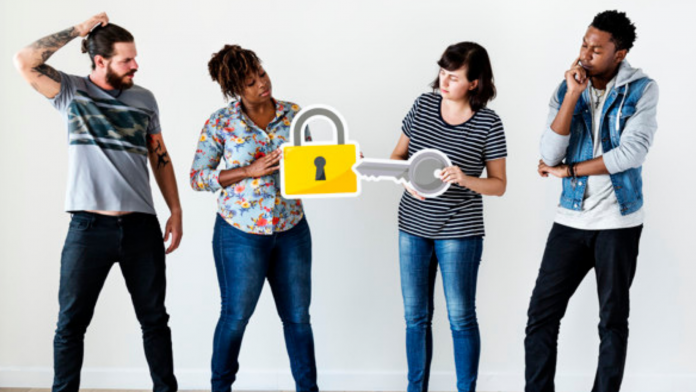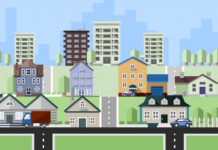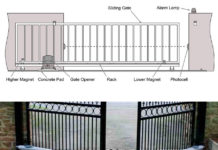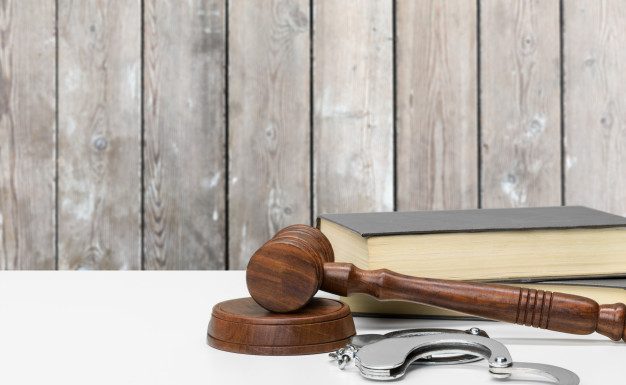Crime can happen to anyone at any time—in fact, Crime incidents increased by 1,448 cases in the first quarter of 2018 hitting 21,263 as compared to 19,815 that were registered in 2017. There were 2,713 robbery incidents in 2017, 2,697 in 2016 and 2,865 in 2015. Some 6,131 cases of breaking in 2017, 5,621 in 2016 and 5,591 in 2015.
These numbers don’t guarantee you’ll be the victim of a crime in your life, but as a homeowner, keeping yourself and your family safe is always a top priority. When your neighbourhood comes together as a community, you’re stronger and less vulnerable, both individually and as a group.
Reducing crime is on everyone’s mind, so get your community together to discuss these five simple ways to boost neighborhood safety.
1. Form a WhatsApp Group
One of the easiest ways to get information and updates from the people who live around you is to create a WhatsApp group. With the popularity of WhatsApp, you can almost guarantee that one member of every household will have access to it.
When you move into the neighborhood, ask your next-door neighbors if a group already exists and get an invitation to join. Since you’ll need to go out and find someone to ask, this is a great way to introduce yourself to new neighbors as well.
If your community doesn’t have a group yet, start one yourself and invite everyone. Remember to keep it private, so its inaccessible to anyone who isn’t invited or accepted as a member.
2. Warn People About Suspicious Activity
One of the best things you can do for your neighbourhood is to report any suspicious activity to other neighbours and the police. If something looks off to you, don’t brush it off as over-thinking. Always go with your instincts—whether it’s a strange car parked outside your estate or a suspicious individual—don’t underestimate the importance of acting fast.
This is where your neighbourhood WhatsApp group comes in handy, as an easy way to share information with everyone quickly.
In addition, don’t try to handle dangerous situations alone; get law enforcement involved right away. Make it a habit to notice your surroundings so you’ll recognize if something is amiss.
See Also: Home Security:Tips Everyone Needs
3. Host a Neighborhood security Course
Unfortunately, people brush off security classes for fear of not wanting to take them alone or insisting they’ll never use it. Encourage your neighbours to take part so you can all learn from a professional and strengthen the trust of the community.
When looking for a security company to hire for your community workshop, consider these three details
- Does the company have videos you can look at?
- Has a referring party been to an actual class and seen what the instructor has to offer?
Use these tips to guide the process of choosing someone who will be a great fit and provide value to the group.
4. Share Tips for Security Landscaping
While most property managers are strict about neighbourhood and landscaping appearances, many neighbourhood communities are not. If this is the case for your neighbourhood, hold a meeting to discuss how landscaping can boost safety for everyone:
Physical features that offer better surveillance, the indication between public and private space and proximity to well-used locations enable stronger control of spaces by law-abiding residents. Such control leads to less delinquency, less fear and less victimization
Here are a few examples of how landscaping can boost community security:
- Keep hedges, trees and large plants trimmed always— overgrown hedges is easy for criminals to hide in.
- Plant flowers with thorns in front of windows to keep intruders from using that as a way inside or have rails.
- Use gravel or stones for the walkway. If someone is walking up to your home in the middle of the night, you’re more likely to hear it.
5. Discuss on a Quarterly or Yearly Basis
You’ve been tracking issues in your WhatsApp group and talking regularly as a community. Now, take all the information you’ve shared and catalogued and structure a community discussion about safety with the SARA Model.( Scan, Analyze, Respond, Assess)
In this case, you can use this to structure your discussion about what’s happened more than once, where you can make changes to reduce issues, and how you can improve reaction or report in the future.
Keeping your community safe just takes a few extra steps. Together, you’re stronger and less vulnerable, so use these tips to bring the neighbourhood together and boost safety for everyone.









